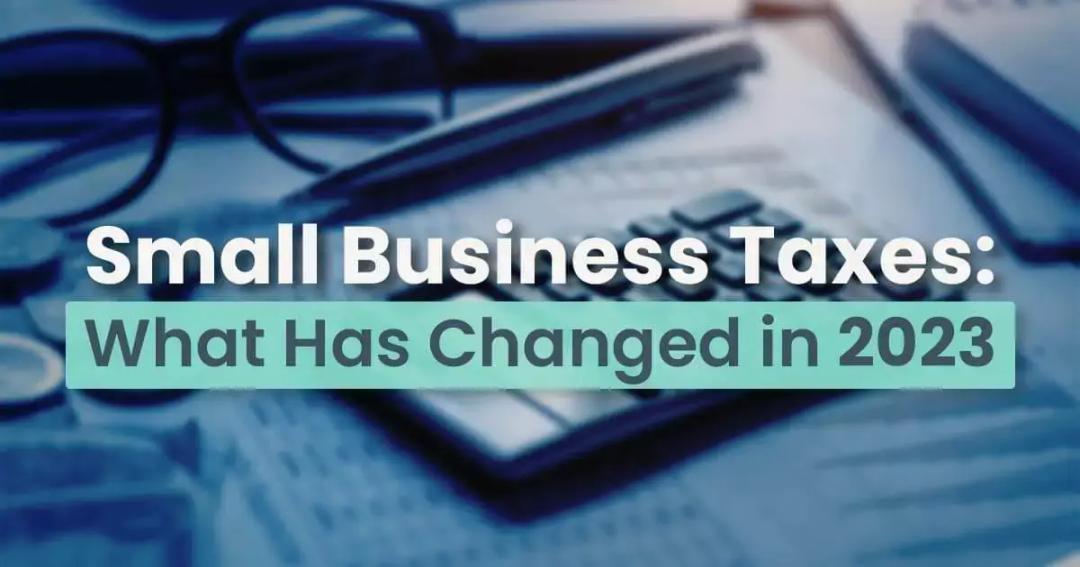
The U.S. tax code is an extraordinarily complex body of law that’s spread across nearly 7,000 pages. To further complicate things, it’s essentially a living document that gets revised and amended every year. To put it simply, taxes are complicated and without a dedicated accounting expert on your side, it can be near impossible to stay on top of all the changes. Small business owners have enough on their plates without having to track the numerous tax law changes that occur every year.
2023 is no exception when it comes to tax changes, especially for small business owners. Here are the key tax changes and deadlines in 2023 to note as you prepare your 2022 taxes and plan for the year ahead.
Important Tax Changes in 2023
Increased Standard Mileage Rate
The standard mileage rate for business miles increased to 65.5 cents per mile in 2023 (a 3-cent increase from the second half of 2022.)
Section 179 Expensing
The Section 179 expense deduction increases to a max deduction of $1,160,000 of the first $2,890,000 of qualifying equipment placed in service during the current tax year. The deduction has been expanded to include improvements to nonresidential property such as fire protection, alarm and security systems, HVAC systems, and roofs.
Qualified Business Income (QBI) Deduction Modification
The Qualified Business Income Deduction (QBID) allows businesses that meet certain criteria to deduct up to 20% of their qualified business income on their tax returns. The 2023 modification increases the threshold for qualification to $182,100 for single and head of household tax filers and $364,200 for married filing jointly taxpayers.
Work Opportunity Tax Credit
The Work Opportunity Tax Credit (WOTC) has been extended through December 31, 2025. The WOTC provides a tax credit to businesses that hire individuals from certain target groups, such as veterans, ex-felons, and individuals who receive government assistance.
The credit amount ranges from $1,200 to $9,600 per qualified employee, depending on the target group and the number of hours worked. Not only does this tax credit help reduce unemployment rates for individuals who face barriers to employment, but it also helps to offset the costs associated with onboarding and training new employees.
Bonus Depreciation Fade Out
From 2017 to 2022, business owners who purchased equipment could claim up to 100% of the asset’s bonus depreciation in the same year they bought the equipment. However, unless Congress extends this, the bonus depreciation will drop to 80% then an additional 20% for each subsequent year.
Be prepared for a more robust IRS
The Inflation Reduction Act of 2022 allocated a historic $46 billion to the IRS — much of which is earmarked for the hiring of as many as 87,000 additional IRS agents.
With an army of auditors at its disposal, it’s very possible that small business owners could see an increase in audits — not exactly welcome news for entrepreneurs and the middle class.
The best way to defend your business against an audit is to trust an accounting expert to handle your taxes. In the event that you do receive an audit notice from the IRS, turn to 1-800Accountant’s Audit Defense team.
FAQs
How much should a business owner put away for taxes?
How much a small business owner should put away for taxes depends on a number of factors such as:
- Type of business
- Income level
- Tax bracket
A good rule of thumb is to set aside at least 25% of income to pay for state and federal taxes.
Is the IRS focusing its attention on small businesses?
With the IRS’s increased budget, the agency’s ability to focus more attention on small businesses has been greatly amplified. Tax compliance and enforcement are two areas that the IRS will be able to pay extra attention to; unfortunately, small businesses typically have fewer resources at their disposal, making them more susceptible to tax mistakes.
The IRS even has a Small Business/Self-Employed Division dedicated to addressing the needs of small businesses and self-employed folks. However, this division also has the time and resources to identify noncompliance and tax fraud as well.
What triggers an IRS audit for small business owners?
There are several factors that can trigger an IRS audit. A few common examples are underreporting income, unusually large deductions, home office deductions, cash transactions, unusually large charitable deductions, and noncompliance with payroll.
Partner with a tax professional to ensure you’re compliant
1-800Accountant's accounting and tax professionals can help small business owners maintain tax compliance, even in the face of a constantly changing tax code. Tax laws and regulations are notoriously difficult to keep track of, and it’s a challenge for many small business owners to keep up with these changes while also maintaining their daily operations.
Working with the pros at 1-800Accountant can help small business owners navigate the complexities of the tax code, provide guidance on tax filings, and help maximize tax credits and deductions.
This post is to be used for informational purposes only and does not constitute legal, business, or tax advice. Each person should consult his or her own attorney, business advisor, or tax advisor with respect to matters referenced in this post. 1-800Accountant assumes no liability for actions taken in reliance upon the information contained herein.
